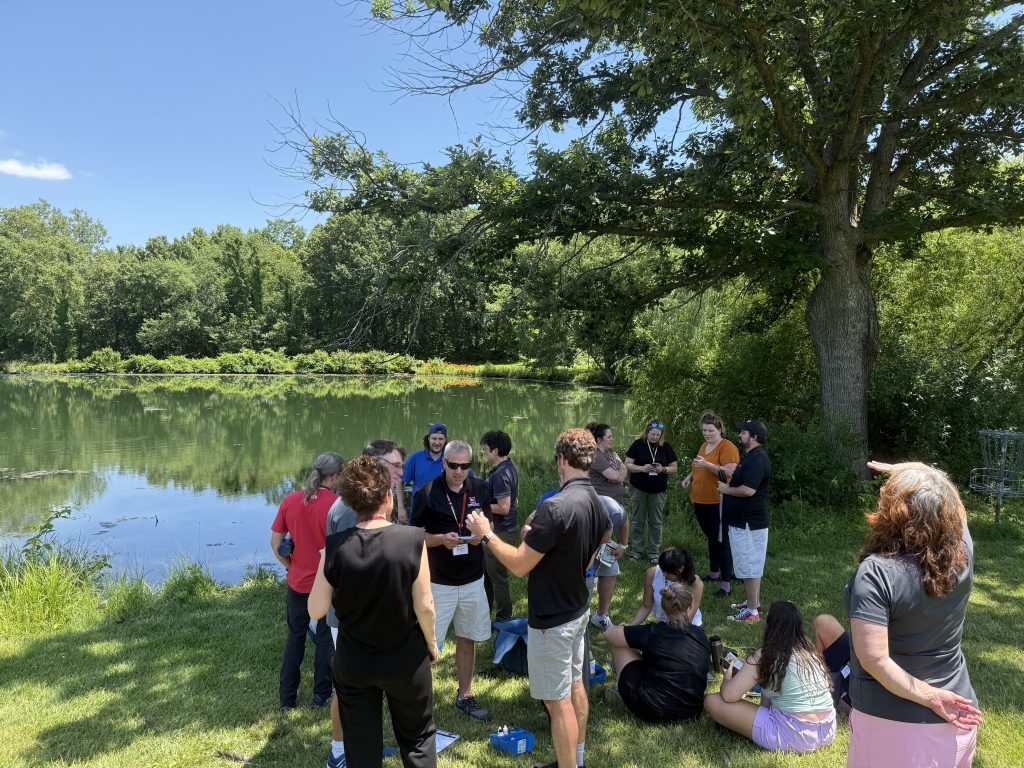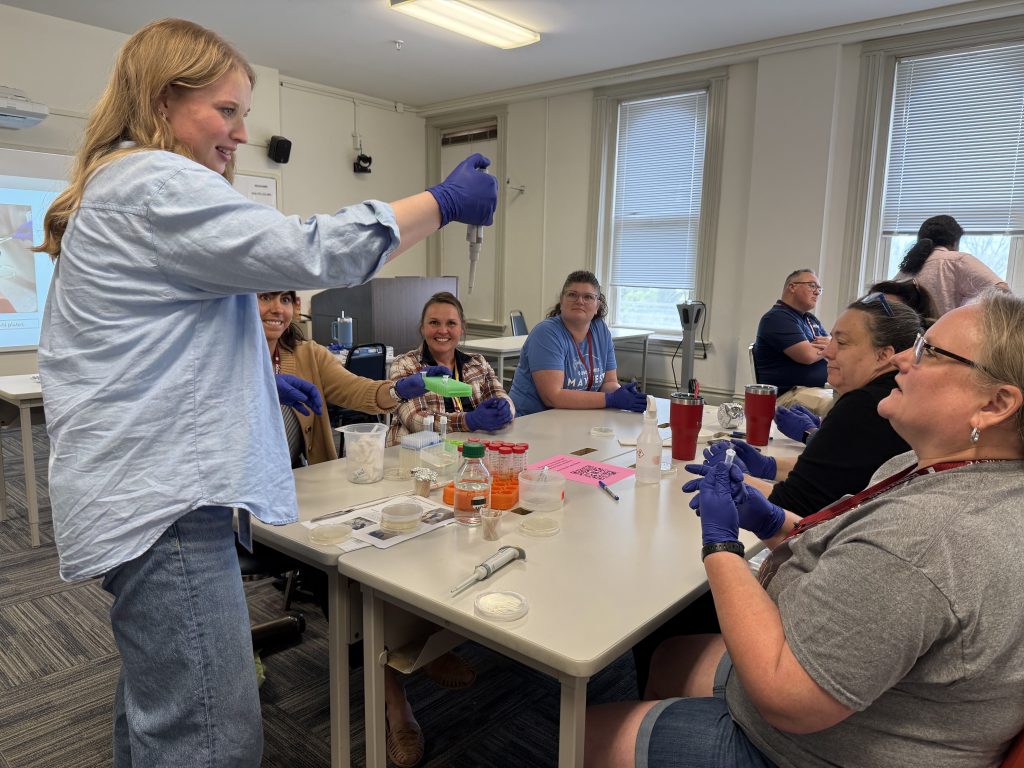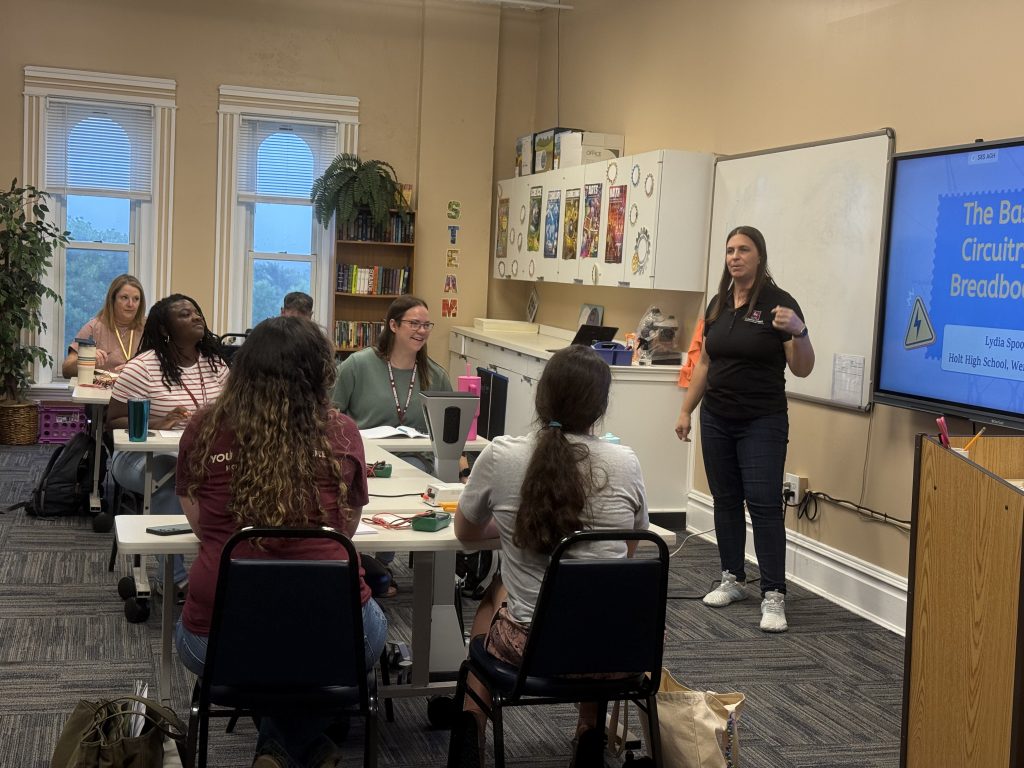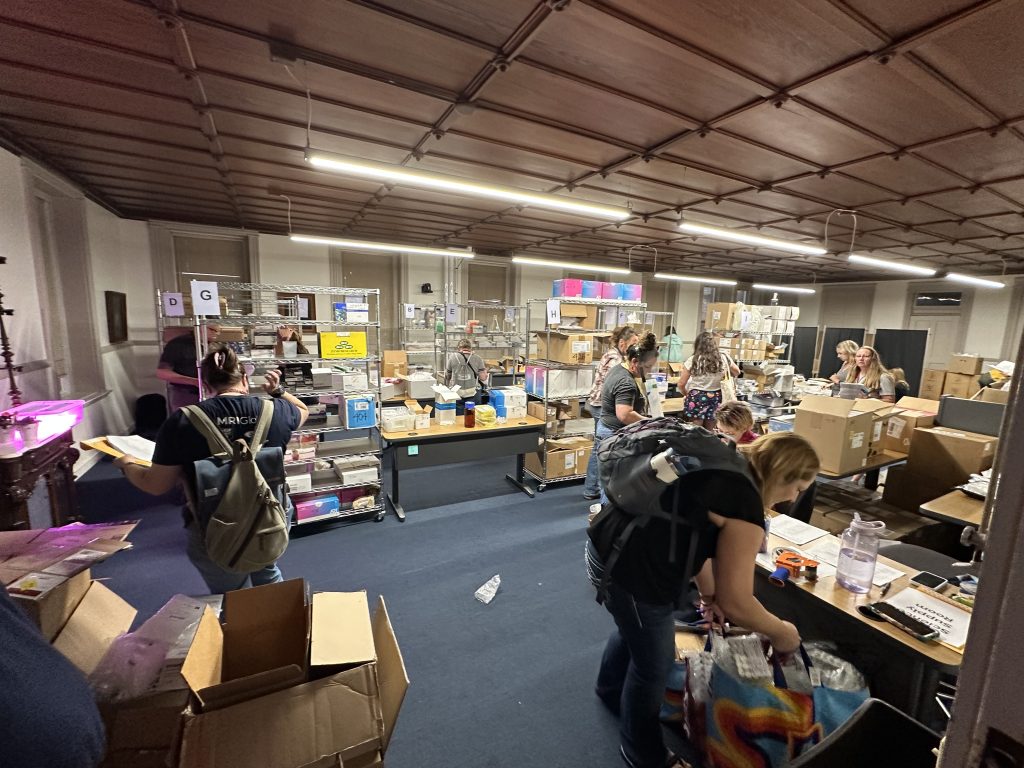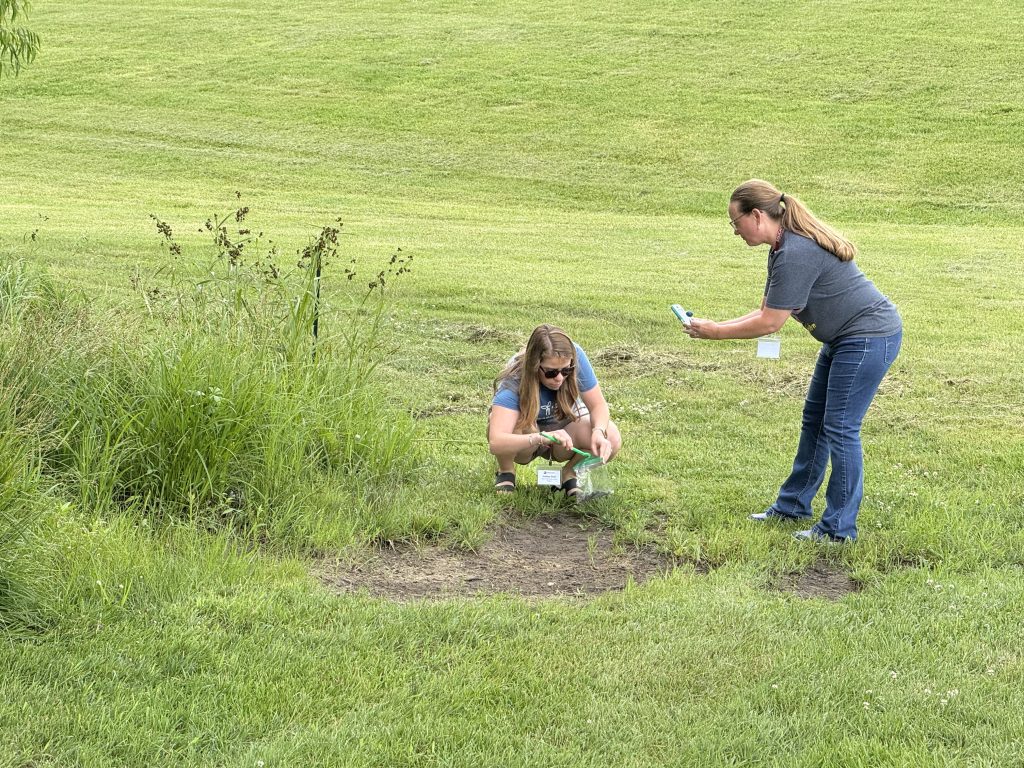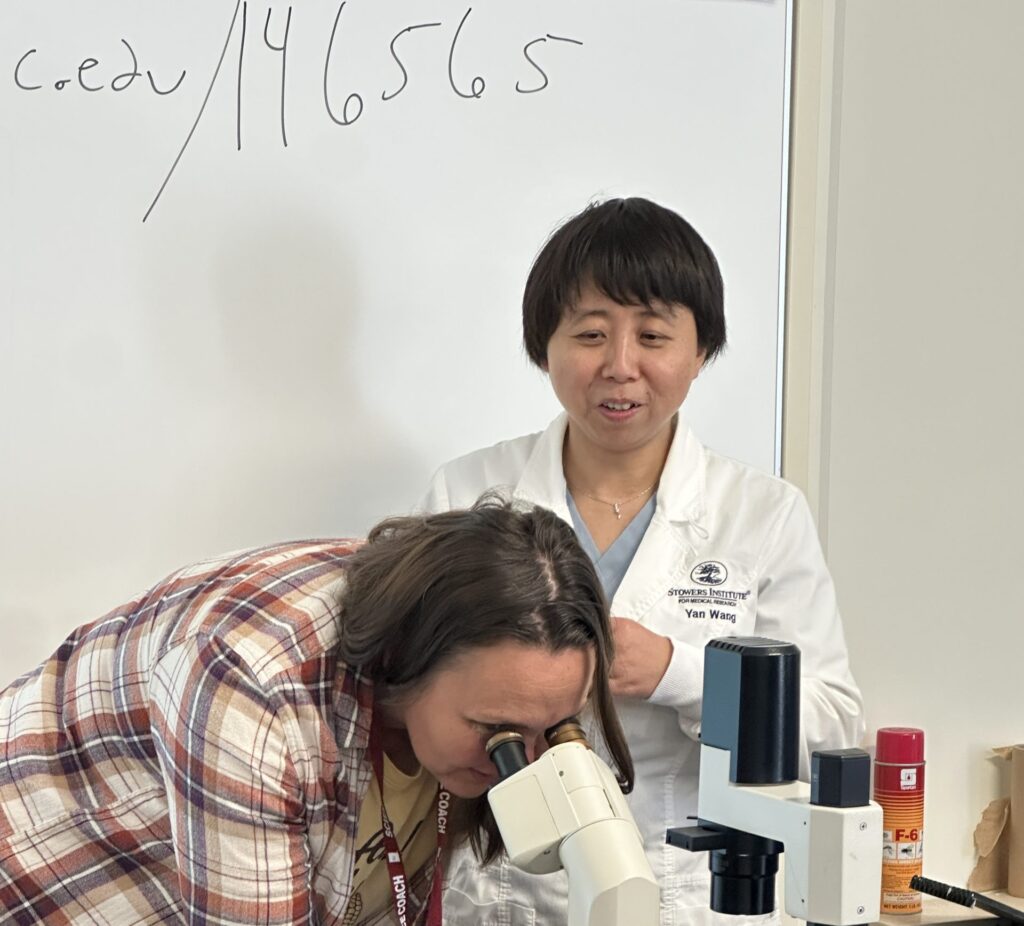Science Coach Academy
Registration now Open Science Coach Academy June 22-25, 2026
The Science Coach Academy is a unique professional development and enhanced learning opportunity for 6th-12th grade research teachers. Held annually in the summer, next year’s Academy will be held June 22-25, 2026 in Leavenworth, Kansas, on the campus of the University of Saint Mary.
Attendees at the 2025 Academy learned about the latest emerging science topics, participated in hands-on demonstrations and experiments, and gained improved skills to guide students as they develop their science projects and science fair competition entries. They also were able to stock up on science classroom supplies and materials for the upcoming school year!

